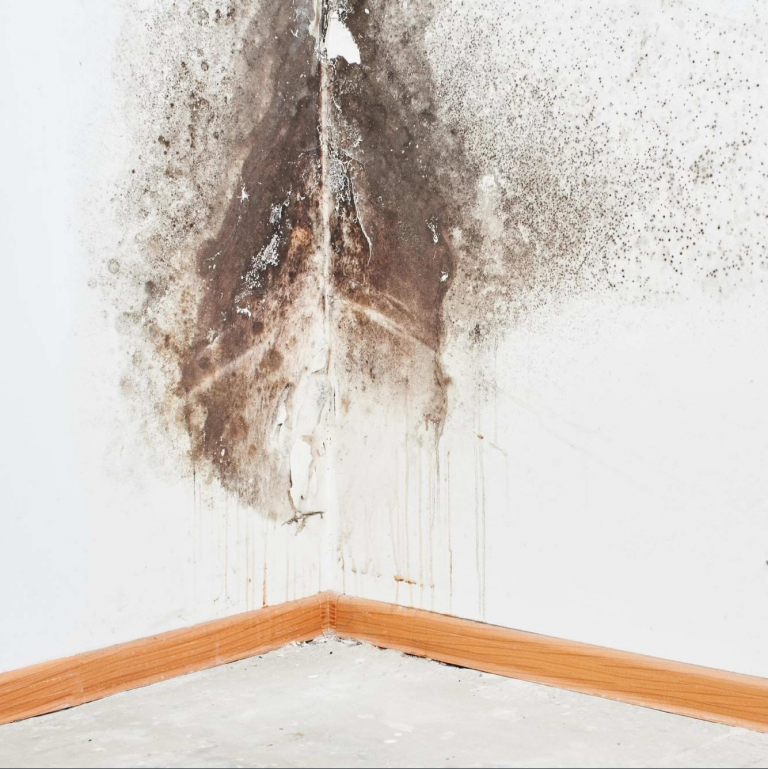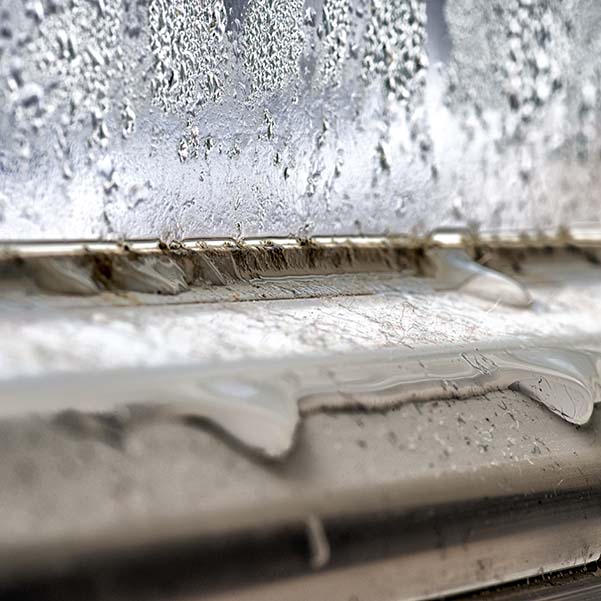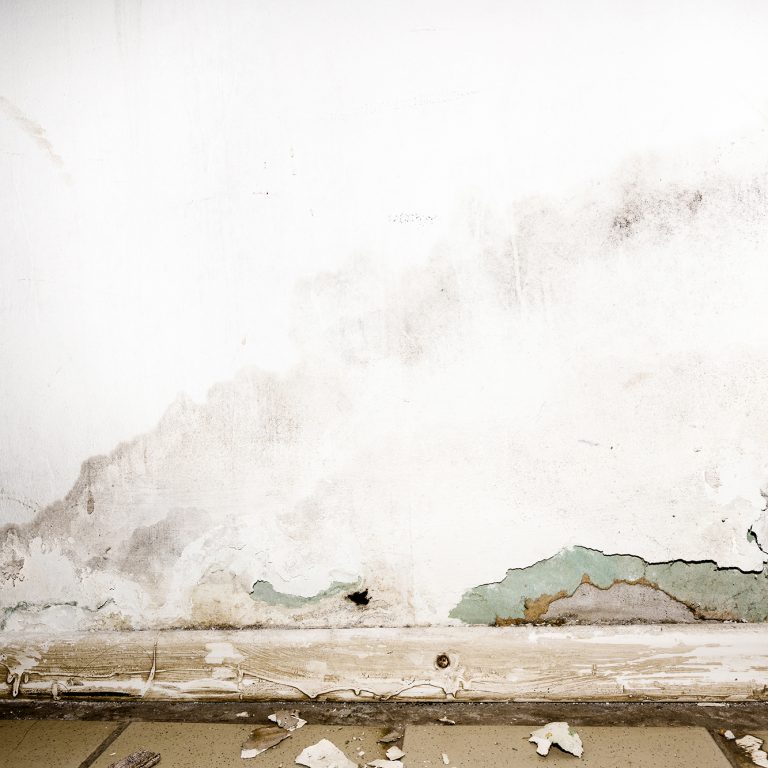
How Can Damp & Mould Affect My Health? – Spotting The Significant Signs
Damp and mould can be annoying and difficult to deal with. If you have a problem with damp or mould, it’s important
At Housing Triage, we help homeowners claim compensation for faulty cavity wall insulation.
We have a No Win, No Fee policy, meaning that in the event that your case is unsuccessful, we won't ask for a penny.
We have a No Win, No Fee policy, meaning that in the event that your case is unsuccessful, we won't ask for a penny.
With a little information about your home from you, we can perform a quick check to find out if you're eligible to claim!
Once we have confirmed that you are eligible, we will do a free survey of the damage caused by the faulty insulation.
Cavity Wall Insulation (CWI) is the insulation between the wall inside your home and the wall outside. Not all CWI is faulty, however a vast amount of UK residents are experiencing problems in their homes due to this issue. This may be because of product degradation, inappropriate application, or poor installation.
Gaps in the insulation itself lead to cold spots which eventually become damp. Secondly the insulation itself can act as a bridge from the external wall to the internal walls, transferring moisture from outside to inside.




A scheme, funded by a ‘green tax’ on household gas and electricity bills, sought to fit millions of homes in the UK with retrofit cavity wall insulation. This was meant to cut emissions and reduce charges by making homes more energy efficient.
Millions were persuaded to sign up to the scheme by the promise of cheaper bills from call-centre staff and door-to-door salesmen employed by energy firms obliged to meet Government targets.
The insulation suppliers were put under enormous pressure to reach tight targets, meaning that many companies who installed the insulation cut corners to save time and escape government fines. Meaning thousands if not millions of homes across the UK have been affected by botched CWI jobs, luckily with a 25 year guarantee from CIGA.
Popular questions about cavity wall claims. If you have further questions please do not hesitate to contact us.
Cavity wall insulation is the insulation between the outer brick wall and the wall in inside your house. This could have been placed there when the house was built, or injected at a later date. Most houses that were made before the 1980s were not built with insulation.
There are a number of indications that your cavity wall insulation is faulty. The main ones are damp (or the smell of damp) mould, condensation, and cold spots. These issues could be a result of a lack of ventilation in your home, however if you try to keep your windows open and the issue is still there, it is highly likely there is an issue with your CWI.
All you have to do is submit your contact details here.
One of our advisors will be in touch swiftly and they will go through a questionnaire with you to determine whether you are eligible to claim or not.
If you are we will book you in for a survey of your home for a professional to collect evidence of faulty cavity wall insulation.
If you are not eligible, you will be informed by the advisor. There are many reasons you may or may not be eligible to claim compensation, so it's really important that you talk this through with one of our experts to find out!
Damp and mould are notorious for being difficult to rid from properties as the problem is known to spread across walls and eventually damage fabric surfaces and clothing. Mould is also extremely dangerous when left lingering within a property as it can cause respiratory problems, especially affecting children and the elderly.
Unfortunately we cannot take on clients who have previously made a claim for cavity wall insulation. Although we would love to help those who have been let down by another law firm, and are unable to continue their case, we cannot restart or continue the claims process.
This is because we would not be able to get funding to do so, meaning we cannot offer a no win no fee policy. This means if we were to take on your case, you would have to pay all fees up front, even if your claim does not go through. This is not something we are ethically comfortable in doing.
The insurance company CIGA offer a 25 year guarantee, however due to The Limitation Act 1980, you only have 15 years from the time the insulation was installed to make a claim against the company.
This is an unfortunate nature of legal claims and we wish we could help every homeowner who is suffering from the devastating effects of faulty CWI. If you're unsure when your property had the insulation installed, get in touch and we can access the documentation for you.
We are unable to provide a set period of time for the length of the claim. This depends on many factors including the defendant’s response and whether we issue the claim into the court process.
The law firm envisage 9 to 18 months, unless the case proceeds to trial or is a high value complex claim. The law firm will, of course, keep you informed of progress throughout, explain the reasons for any delays and advise you if any additional, unforeseen work becomes necessary.
You can help progress the speed of your claim by co-operating with the law firm and returning/supplying documents to us in a timely manner.
The Conditional Fee Agreement (also known as “No Win, No Fee”) is a legal funding arrangement provided the client co-operates with their obligations to give us instructions to progress the claim. The client only pays for the legal fees if they are successful and receive compensation. This allows lawyers to act for clients who do not have the benefit of other means of funding legal expenses. You must take advice and co-operate with your lawyer to progress your claim.
If the claim is successful, your law firm approach the Defendant for their costs. In addition to this you have an agreement with Housing Triage for 25% (Incl. VAT) to be deducted from their damages.
After the Event Insurance is purchased alongside a Conditional Fee Agreement and covers your claim in respect of any fees incurred by the Defendant If the claim is unsuccessful, the ATE Insurance will pay the Defendant’s costs. The ATE premium is self-insuring and therefore you do not pay the premium if the claim is unsuccessful. The ATE premium is payable from the damages if the client is successful.

Damp and mould can be annoying and difficult to deal with. If you have a problem with damp or mould, it’s important



In this blog post we talk through what the CIGA 25 year guarantee means and how you can use it to make a claim if your cavity wall insulation has failed.


What is Cavity Wall Insulation? To understand why the cavity wall insulation has failed, we first need to know what cavity wall



Damp and mould can be annoying and difficult to deal with. If you have a problem with damp or mould, it’s important



In this blog post we talk through what the CIGA 25 year guarantee means and how you can use it to make a claim if your cavity wall insulation has failed.
If you’re experiencing damp and mould, and you live on the west coast of the UK, it is likely you have faulty cavity wall insulation. Request a call back from one of our experts today. We will arrange a FREE survey of your home and see if you have a case for compensation. You have nothing to lose!